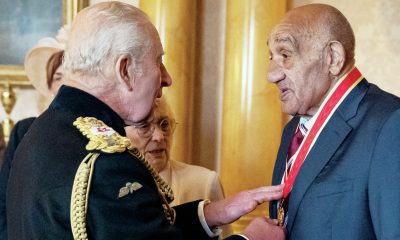

The supreme specialist throughout successive Lions’ series against the All Blacks in 1977, the Springboks in 1980 and the All Blacks again three years later, he is impeccably qualified to deliver a verdict on the demise of his most-capped successor, Adam Jones.
Typically for one who used to be the junior member of the ‘Viet Gwent,’ alias the Pontypool front row, Price does not pull his punches. He points an accusing finger at the Welsh management, as headed by Warren Gatland.
“They handled it badly, particularly when they took Adam to South Africa at the end of last season,” Price said. “He was short of games and everyone knew his confidence wasn’t what it should’ve been.
“They should have realised that and told him, ‘look Adam, we’re leaving you at home because we want you to have a good summer’s training so you’ll come back next season fresh and raring to go’.
“Instead they picked him for the first Test against the Boks and took him off after half an hour. It was undignified but then the same thing happened to him at the start of his career under Steve Hansen.
“As far as I’m concerned, Adam should never have gone to South Africa. Now they’ve left him out and picked someone two places beneath him in the Blues pecking order. He says there’s no bitterness or resentment but he must have felt peeved.”
Jones’ demise can be traced back to the revised scrum engagement procedure introduced two years ago. Its effect was to deny the wilier tightheads room to manoeuvre an early hit and at least one ex-international coach attributes that as the reason behind Jones’ fall from grace.
Price disagrees. “The change meant they went from a moving engagement to a static one,” he said. “It took Adam a while to adjust but he’d have got over that because he’s a powerful lad.”
After ordering Jones to lose weight last summer, Cardiff Blues coach Mark Hammett gave the ‘Hair Bear’ his public backing as good enough to renew his Test career during the Six Nations following his omission from the autumn series.
“Adam Jones is in some of the best shape of his life,” Hammett said. “I think ‘Gats’ is going to be really stoked with what he’s got.”
Gatland was so ‘stoked’ that he declared Jones surplus to Six Nations requirements, effectively convincing the 100-Test prop that the time had come to retire.
Despite Rhodri Jones reducing the list of available tightheads because of shoulder surgery, his veteran namesake had been expected to make the squad, if only as a safety net in the event of the undisputed No. 1, Samson Lee, not being fit.
Instead he found himself squeezed out, unsurprisingly, by Aaron Jarvis and, most surprisingly, by Scott Andrews. The 25-year-old from Llantrisant had, at best, been third-choice Blues tighthead behind Jones and veteran Tongan, Taufa’ao Filise.
At a stroke, Gatland had dumped his senior tighthead and promoted a player not considered good enough to make a single start in the Pro12 for the Blues. Andrews’ three first-team appearances have been in the Challenge Cup, twice, and the second-string LV= Cup, once.
Andrews could have been even further down the pecking order had another Blues Test tighthead, Craig Mitchell, not spent most of the season recovering from injury which has restricted him to two truncated Pro12 appearances.
Jones arrived at the not unreasonable conclusion that he had been written off, and that, because he felt better than “just injury cover”, he decided to call it a day. The WRU responded with a five-sentence tribute from Gatland which avoided any personal view on the player’s decision.
Yet five days later, Gatland was saying to anyone who cared to listen: “He wasn’t out of contention in our mind.” Maybe somebody from the inner sanctum at Team Wales ought to have had a word in his ear.
Why, if Jones really wasn’t out of contention, did Gatland not play safe and add Jones to the squad as insurance against losing Lee? They must have known there was a danger they would lose his predecessor for good.
“There wouldn’t have been anything to stop him picking an extra prop,” Price said. “It wasn’t as if they’d run out of options.” The extra prop turned out to be Andrews, a selection so far out of left-field that it must have surprised the man himself. Before winning the last of his seven caps, as a substitute for Jones against South Africa in 2013, Andrews speculated about his own future prospects.
“It’s going to be pretty hard to oust probably the best tighthead in the world,” he said. “I don’t think he has any idea of finishing soon the way he’s playing. So he could go on for who knows how long – hopefully not too long…!”
Jones will be 34 in March. Price, as immovable during his eight years as a Test tighthead, played 53 internationals for Wales and the Lions from 1975 to 1983 when a groin injury forced him to retire at 32. He had hardly missed a match.
During the eight years until Jones’ painfully short appearance against the Springboks on the occasion of his 100th Test, Wales played 107 international matches – more than twice as many as during Price’s time.


International Rugby
Charlie Elliott: Analysing England’s debutants for France XV clash

International Rugby
England XV vs France XV: Preview, Where to Watch and Match Details

British and Irish Lions
Tommy Freeman promises ‘fun and dangerous’ British and Irish Lions approach to Argentina clash

























You must be logged in to post a comment Login